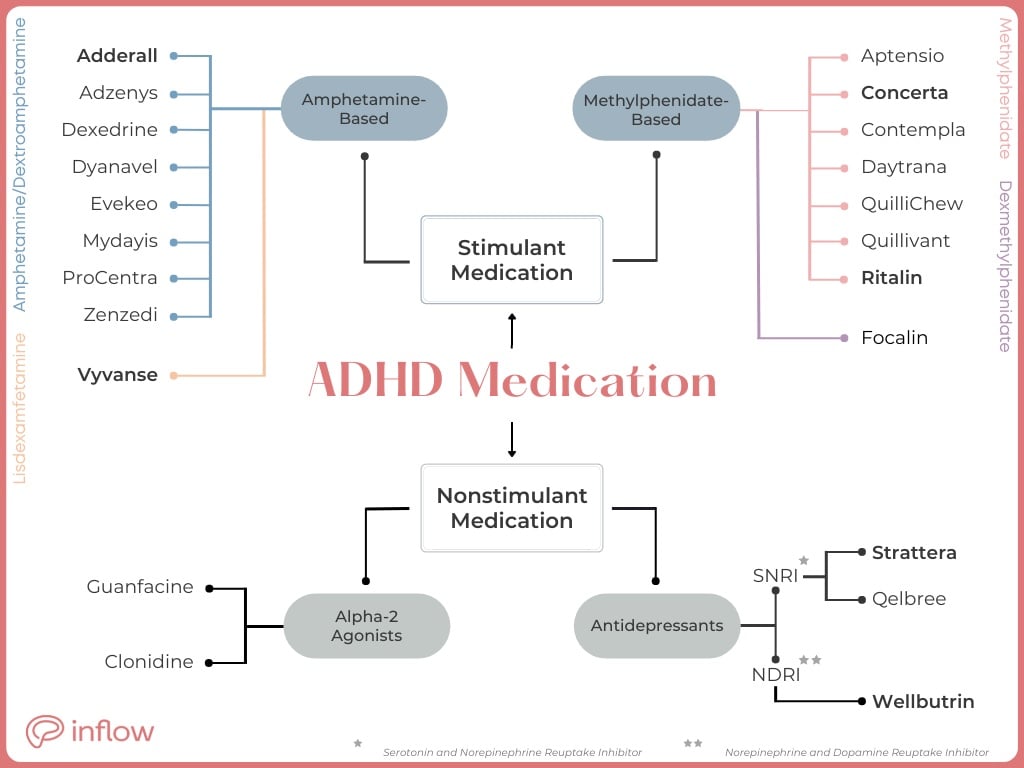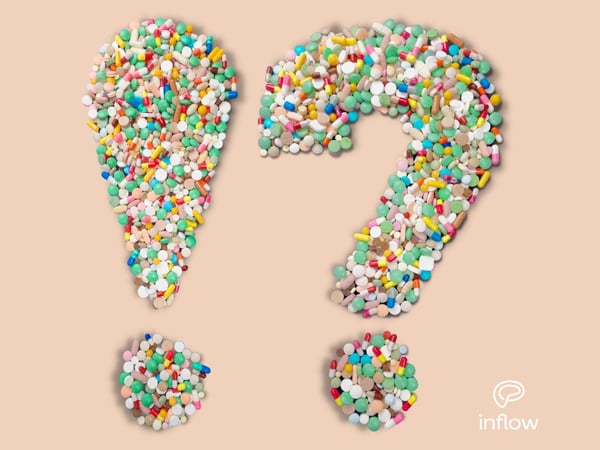Medications work differently for everyone; there can be a lot of trial and error when finding the right medication. Speak with your medical provider or pharmacist about any questions or concerns you may have about medications or other treatment regimens.
How does ADHD medication help the ADHD brain?
ADHD medications help individuals with ADHD gain the clarity needed to deal with the various challenges and symptoms of ADHD. Some of the most common ADHD symptoms that can be treated with medication include:
- Motivation deficits
- Procrastination
- Emotional dysregulation (including anger and rejection sensitive dysphoria)
- Impulsivity
- Impatience
- Brain fog
- Forgetfulness (poor "working memory")
- Organization
It should be noted that ADHD medications are just one of the many treatment methods. Because the seemingly endless list of medication options can be a bit overwhelming, let's start by separating ADHD medications into three categories:
- Nonstimulants
- Methylphenidate-based stimulants
- Amphetamine-based stimulants
What are your options for ADHD medication?
ADHD medications are separated into three main categories. Within the two stimulant categories, medications are separated further based on the timing of their release in the body. Extended release (XR, ER) medications can last 8-12 hours, intermediate release 4-8 hours, and immediate release (IR) for up to 4 hours.
(Note: not all of the listed medications have different types of releases; some just have one or two.)
Nonstimulant medications
- Clonidine (kapvay)
- Guanfacine* (intuniv)
- Qelbree (viloxazine)
- Strattera (atomoxetine)
- Wellbutrin (bupropion)
*Shown to be effective for treating ADHD symptoms attributed to emotional dysregulation, such as rejection sensitivite dysphoria

Methylphenidate-based stimulant medications
Extended release
- Aptensio XR
- Concerta
- Contempla XR
- Daytrana
- Dexmethylphenidate ER
- Focalin XR
- FoQuest
- Jornay PM
- Metadate ER
- Methylin
- QuilliChew ER
- Quillivant XR
- Ritalin LA (long-acting)
Intermediate release
- Ritalin SR (sustained release)
Immediate release
- Dexmethylphenidate
- Focalin
- Methylphenidate IR
- Ritalin
Amphetamine-based stimulant medications
Extended release
- Adderall XR
- Adzenys XR
- Dexedrine (spansule)
- Dextroamphetamine ER (D-amphetamine salt combo)
- Dyanavel XR
- Mydayis
- ProCentra
- Vyvanse (lisdexamfetamine)
Immediate release
- Adderall IR
- Dextroamphetamine (D-amphetamine salt combo)
- Evekeo
- ProCentra
- Zenzedi
Talking to your doctor
If talking about your mental health challenges is uncomfortable for you, you’re not alone. I've been there myself. It's okay to be nervous about talking about your mental health, treatment, and medication.
I like to write down my questions and concerns and save them for the next time I see my physician or pharmacist. It wasn’t easy at first, but I now have a very good relationship with them. We always make room for questions at the end of my appointments.
Click here to learn about ADHD medication side effects.
Final thoughts
Like all medication, ADHD prescription drugs affect everyone differently. Not to mention, ADHD treatment options are endless, which can feel a bit overwhelming. We hope that this guide contributed to your understanding of ADHD medication, and helped you navigate this complex and sometimes-controversial topic. I also wanted to share this gentle reminder:
Your ADHD-related challenges are valid, but they don't define you. That also applies to your treatment needs.






